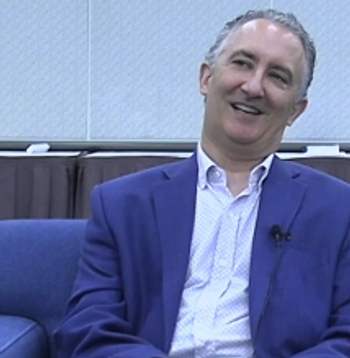
- Psychiatric Times Vol 27 No 10
- Volume 27
- Issue 10
APA Guidelines for DSM-5 Users
Surprisingly, the American Psychiatric Association (APA) has never established formal guidelines that address what qualifications are required for one to use DSM.
Surprisingly, the American Psychiatric Association (
With the forthcoming publication of DSM5, this may be an opportune time to develop formal guidelines for identifying a basic set of practitioner qualifications. There is precedent for establishing such user qualifications. The American Psychological Association published their “Guidelines on Test User Qualifications” based on concerns that some psychological test users were inadequately trained and misusing test results.2 Like a formal psychological test, DSM is a technical tool that requires clinicians to have the requisite competencies to use it appropriately. The inappropriate application of DSM could create dire human consequences: high rates of psychiatric misdiagnoses, incorrect treatment plans, and negative patient health outcomes.
The ethical guidelines of all mental health care disciplines share language that mandate providers practice within the boundaries of their professional competence.3 However, without guidance on this issue, many providers may be genuinely unaware that they lack adequate training to use the DSM. Clearly, user guidelines would be of immense value in assisting clinicians to self-monitor and assess their own competency.
Medical training and competence may be a potentially contentious issue in the development of DSM user guidelines. For example, Moffic4 recently noted the critical importance of possessing general medical knowledge in making a psychiatric diagnosis and argued that psychiatrists are uniquely qualified to use the DSM-5. Understandably, providers with little or no medical training may have difficulty identifying the complex etiological relationship between general medical illness and mental symptoms.5 Therefore, it can be argued that safe and effective DSM use requires that patients being seen by nonmedical behavioral health providers be evaluated for the presence of contributing medical conditions, especially in those cases involving atypical, newly diagnosed or treatment-resistant mental disorders.6
Indeed, guidelines for DSM user qualifications could encourage all clinicians to identify areas where they may lack important clinical knowledge (eg, general medicine) and to seek consultation with their medically trained colleagues. For instance, DSM5 user guidelines would also encourage psychiatrists and other medically trained mental health providers to engage in an ongoing self-assessment of the current state of their general medical knowledge and diagnostic skills. This form of self-monitoring would then allow patient safety concerns to powerfully influence their referral decisions.
At the heart of the proposed user guidelines is a strong commitment to patient safety. However, adopting overly restrictive and rigid qualifications to use the DSM5 might result in the unintended consequence of reducing access to mental health care. Indeed, recent research has documented the current desperate shortage of mental health care providers in the United States.7 Therefore, the challenge before any future APA task force would be to develop flexible and creative DSM user guidelines that serve to preserve and expand access to mental health care, while simultaneously ensuring patient safety.
We believe the adoption of guidelines for DSM5 user qualifications based on these specific considerations would likely result in increased accuracy of psychiatric diagnosis and improved treatment outcomes. Ultimately, the overarching goal is to encourage all mental health providers to be responsible and accountable for their patient’s overall health, safety and well-being, concerns that go well beyond issuing only a psychiatric diagnosis.
References:
References
1. American Psychiatric Association. Diagnostic and Statistical Manual of Mental Disorders, Fourth Edition, Text Revision. Washington, DC: American Psychiatric Association; 2000:xxxvii.
2. Turner SM, DeMers ST, Fox HR, Reed GM. APA’s guidelines for test user qualifications: an executive summary. American Psychologist. 2001;56:1099-1113.3. Grace GD, Christensen RC. Referral for medical evaluation: an ethical issue? Psychiatric Serv. 2010;61:3.
4. Moffic HS. Caution! Who should be the DSM-V diagnostician? Psychiatric Times. 2010. Available at http://www.psychiatrictimes.com/display/article/10168/ 1518607#. Accessed March 4, 2010.
5. Grace GD, Christensen, RC. Recognizing psychologically masked illnesses: the need for collaborative relationships in mental health care. Prim care Companion J Clin Psychiatry. 2007;9:433-436.
6. Grace GD, Christensen, RC. Medical evaluations for patients with psychiatric disorders. Psychiatric Serv. 2009;60: 849.
7. Thomas KC, Ellis AR, Konrad TR, et al. County-level estimates of mental health professional shortage in the United States. Psychiatric Serv. 2009;60:1323-1328
Articles in this issue
over 15 years ago
Moral Judgments and Emotional Painover 15 years ago
Evaluative Disordersover 15 years ago
Advice From Moody’s Dinerover 15 years ago
“Morality” Professor Responsible for Research Misconductover 15 years ago
Keys to Success in ADHD Treatmentover 15 years ago
The Impact of Screen Media on Childrenover 15 years ago
Update on Autismover 15 years ago
What the Future HoldsNewsletter
Receive trusted psychiatric news, expert analysis, and clinical insights — subscribe today to support your practice and your patients.







